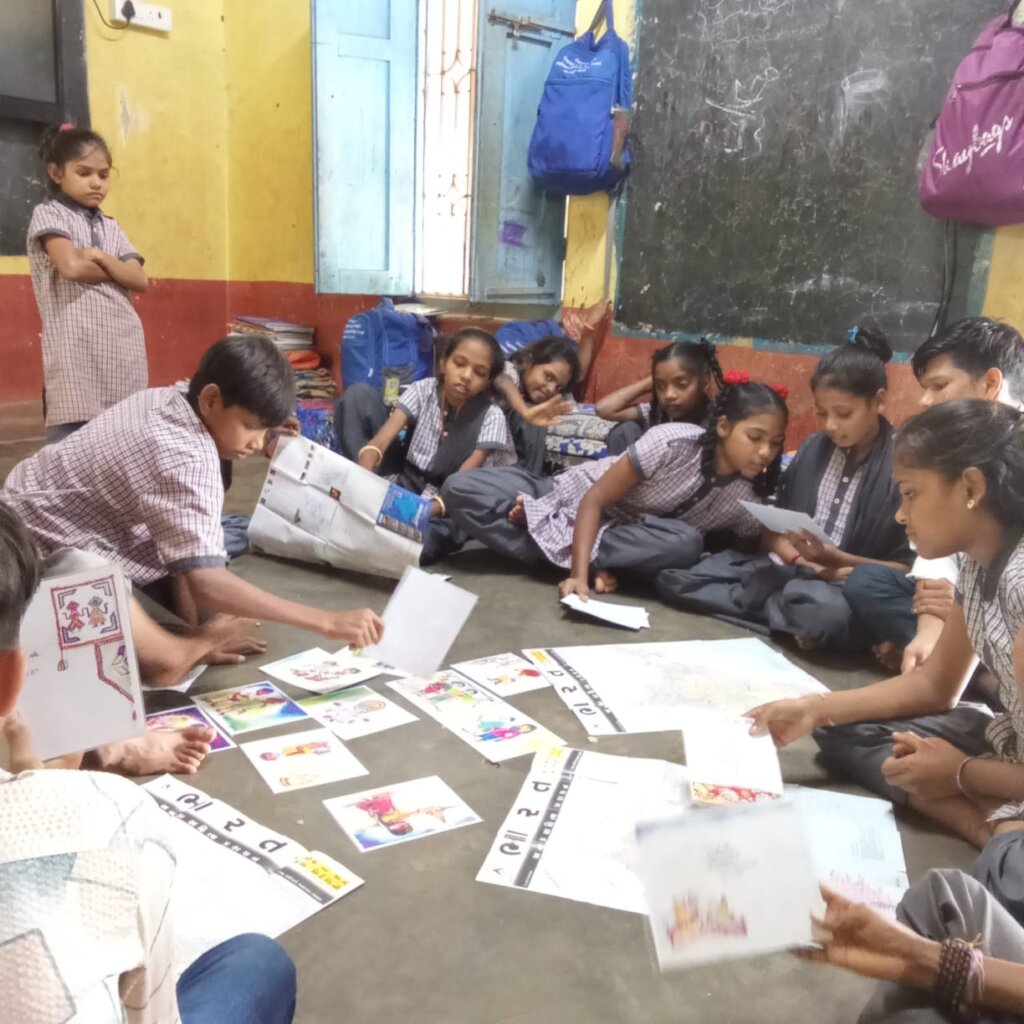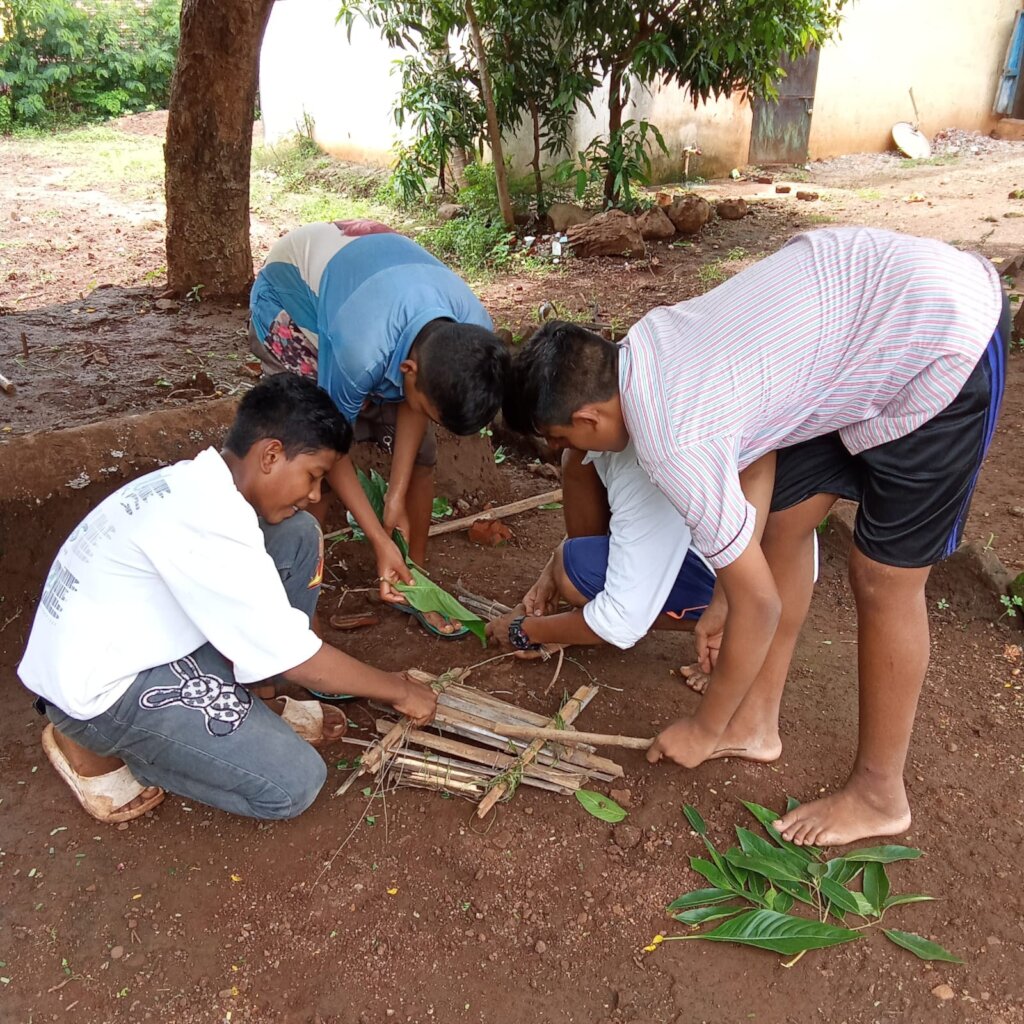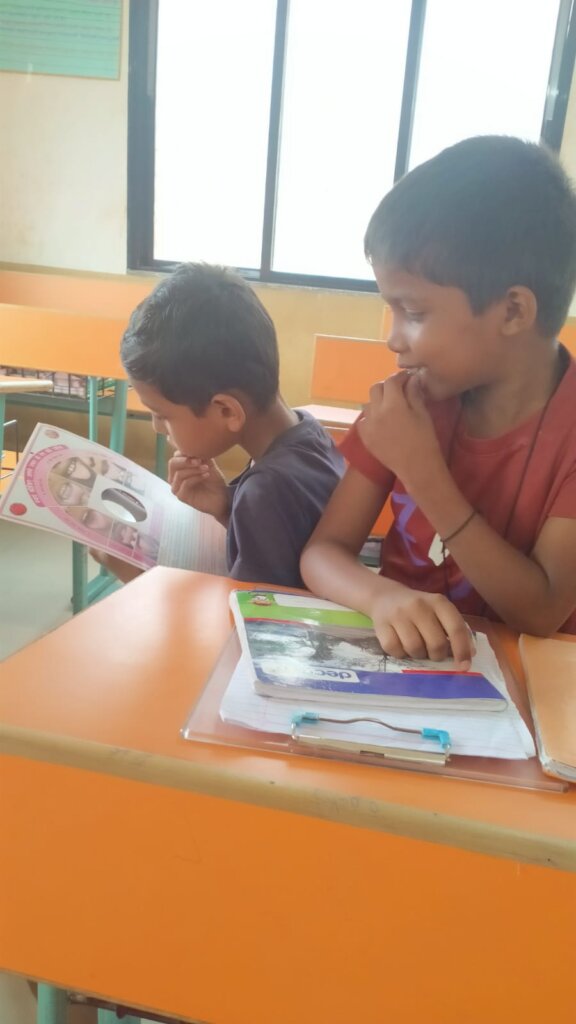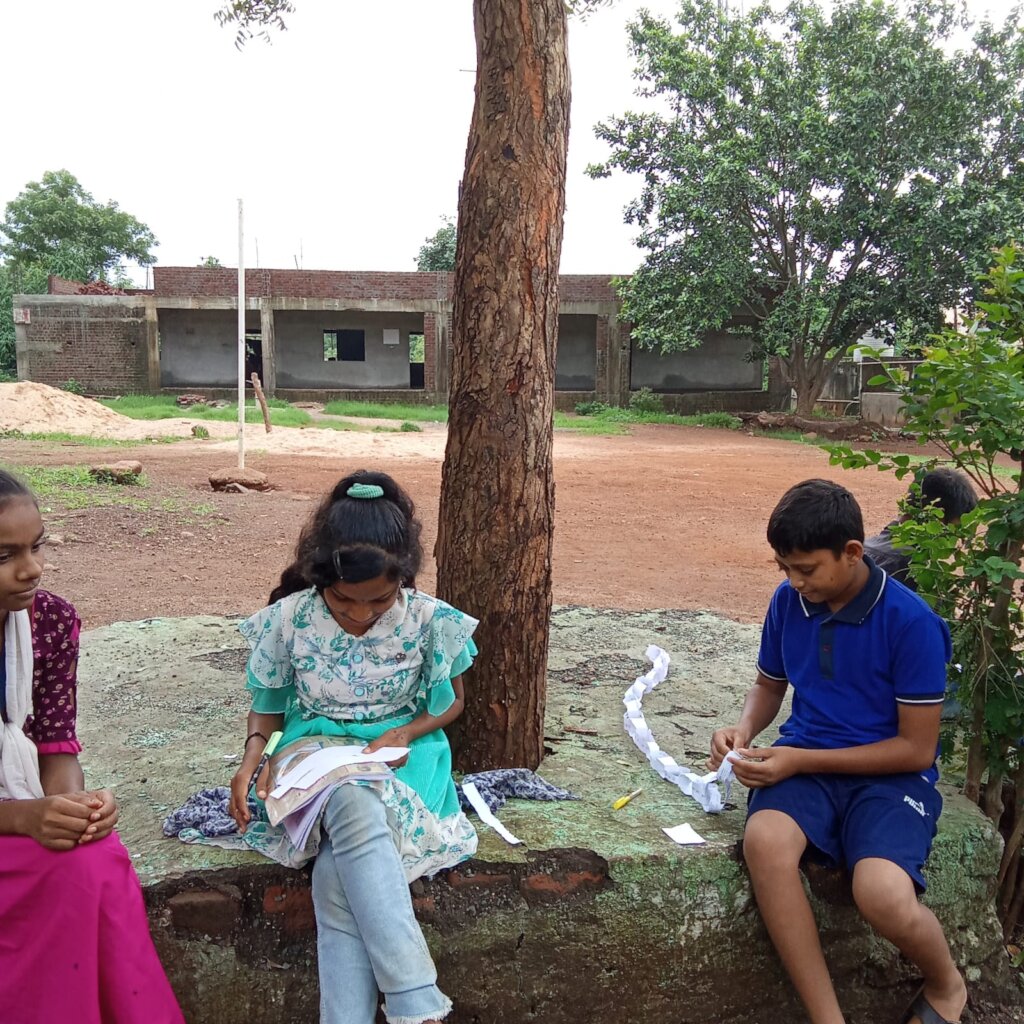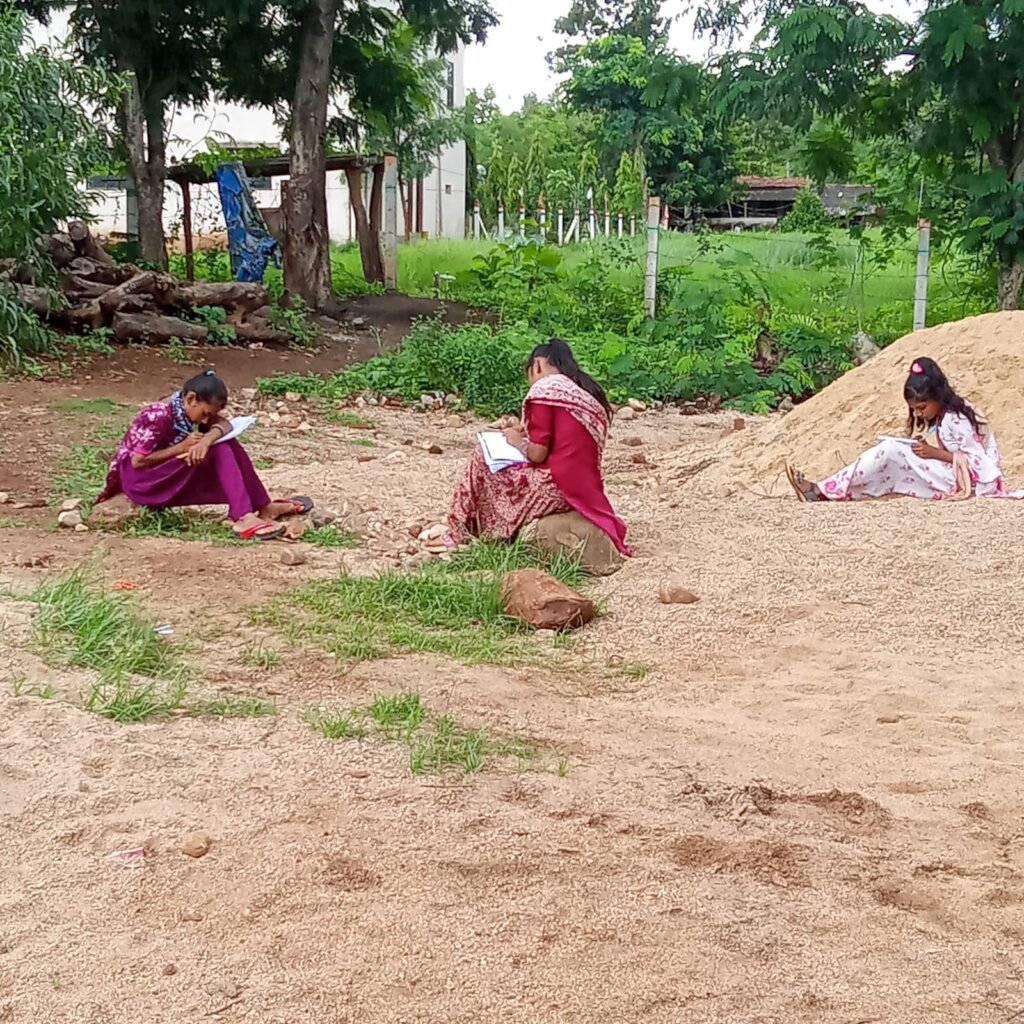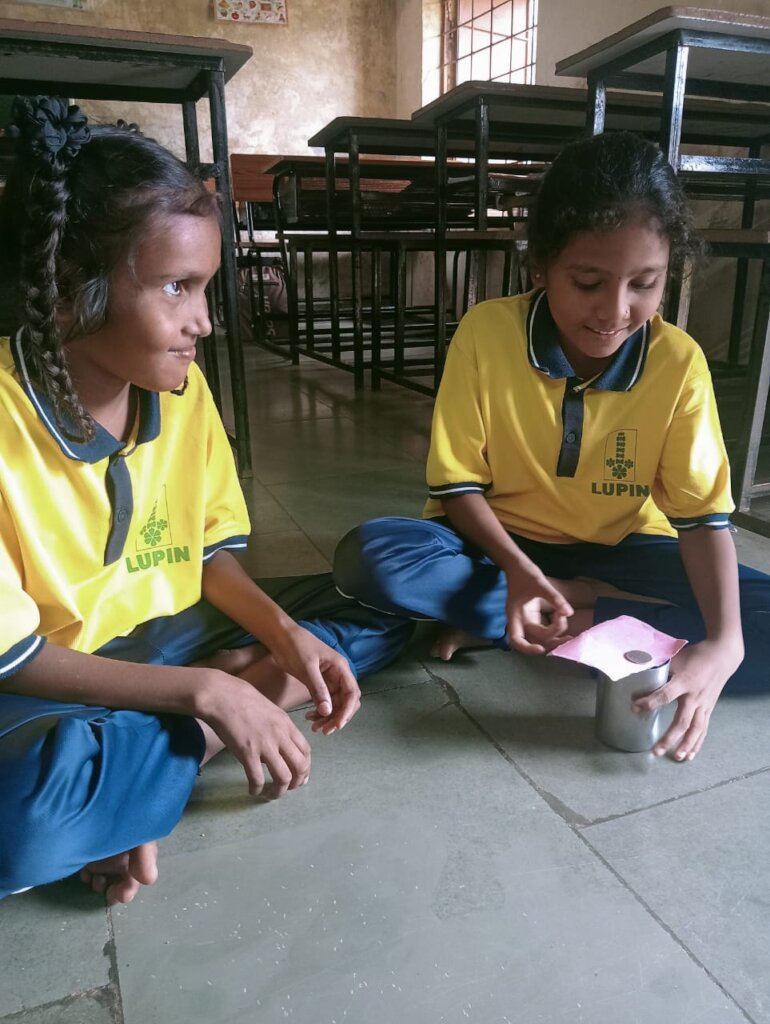By Lijimol | Project Coordinator
The Aaranyak programme had new wings growing in the past periods. We began our new initiative Amli Timli to facilitate the formation of participatory learning space in the Aashramshalas. The initiative has gained momentum in the past six months. In this project the Aaranyak team would visit two Aashramshalas daily. Aside from Amli Timli we continue our Adolescent empowerment sessions at 10 Aashramshalas weekly to facilitate children in life skills, mental health, child rights, environment, language in addition to general science and mathematics. This approach has also made our engagements with the children in 10 Aashramshalas more intense compared to the years before as we were earlier visiting them fortnightly.
Baseline data comprising of the demographics of the children at these 12 Aashramshalas is completed. A total of 1575 children (819 boys ,756 girls) were captured in the baseline data.
We have been able to do a baseline assessment of the children of grade 4 and 5 at Kundiamba Aashramshala (Amli Timli ) to capture their prowess in basic foundational concepts of mathematics. Later interactive and fun games associated with mathematics, general science is planned daily to be done with children. Children are beginning to enjoy and learn these basic concepts.
Family groups have been made in the 12 Aashramshalas. Family group will help children of all ages in a village to support each other in the residential space of Aashramshalas , especially in older children in taking care of the younger ones in chores and studies.
We saw a commendable improvement among children of 14-15 in identifying and expressing their emotions and their engagement in mental health activities which requires patience and focus.
Children have also become aware of the child rights, especially they are now able to identify various scenarios where Right to Participation can be realised.
The daily engagement has indeed helped in building of deep relations with children which helps in giving individual attention to children during the sessions.
IMPLEMENTED SESSIONS
The Amli Timli initiative under the Aaranyak programme kick started in June 2024. The months of April and May was intensely dedicated to creating the Theory of Change, Plan of Action and staff training. These months we focussed on drafting the major domain themes for Amli Timli and the Aashramshlala project.
The Amli Timli initiative primarily focus on creating a safe, open and exploratory learning space for children and to facilitate children in realizing the Right to Participation in their learning. We began to visit two Aashramshalas, Uttar Buniyadi ,Samarpada Aashramshala (Class 9-10) and Mahatma Gandhi Kundiamba Aashramshala (Class 1-8) daily.
We also identified three new Aashramshalas this year and a total of 10 Aashramshalas were engaged weekly.
Staff recruitment and training: This year we wanted to engage the children deeply in STEAM (Science, Technology, Engineering, Arts and Mathematics). A team consisting of young people who graduated from science streams was recruited for this reason. But they needed concept clarity and trainings in Child rights, Life skills, Mental health and essentially trainings on facilitating sessions with children under the Shaishav’s approach. The sessions on STEAM topics had to be facilitated in interactive and interesting methodology. We have also started reflective circle practice among the team members on Friday to reflect deeply about the own.
Balmela: We began with Balmela in all the Aashramshalas. This Balmela was primarily to acquaint the children, both old and new with the team. Balmela comprised of ice breaking and introductory games, creativity inducing crafts and puzzles games. The children from Std 1-4 were engaged in Bal-geets (songs) games, painting sessions and jigsaw puzzles. A total of 1779 children were engaged in 23 Balmelas in 12 Aashramshalas. Children enjoyed these sessions. The older children had inhibitions initially in the games, especially between the girls and boys, which eventually narrowed after the end of games.
Child rights sessions: Child rights are an important component in the Aaranyak programme. The child rights sessions begin with the Needs and Wants session, where children through serious deliberation decide their priorities in life and eventually the relevance of rights in their lives. We focus on four major rights that encompass the primary rights. Rights to Life. Right to Development, Right to Protection against Violence and Right to Participation was discussed with children through mediums of board games, snake and ladder and stories.
Children were new to the concept of right and their entitlements. The games were an engaging medium to inform about them.
Child rights Assessment: We did a child rights assessment with children after the child rights sessions. This posed as a post-test to assess their knowledge and awareness in child rights. The children in groups answered the relevant rights in different scenarios. Then children who were unaware of child rights are now able to name the rights and even associate it with the reality lives in a nominal way. This calls for more child rights sessions with children, which will be planned in the coming months.
Life skills: A total of 10 life skill activities that dealt more with self-awareness, creative thinking, effective communication skills, interpersonal relationships and decision making were executed in these months. Children enjoyed some of the sessions and even intrigued by some sessions where they must work in groups or let go of their creations. Older children exhibited shyness in some sessions where they had to perform or express without inhibition. We facilitated sessions tiled Draw in your style, You are special, Post card making, Tuka lelo, Fold game, Blind drawing, Baste the bear.
Making of family group and activities in the group: As the beginning of the year, children were grouped to Family groups. Family groups have children from all the grades grouped in accordance with the villages. Same and adjacent villages form the basis for the grouping. This group is supposed to take care of the members. This is a mechanism where the older kids will take care of the younger ones in daily chores and academics. The new and young kids usually struggle with the chores. Later children also made agreements and set their goals. Life skill activities like Name tag, Parichay sakhalan were also done in family groups to boost the camaraderie and their social skills.
Nature-connect activities: The children in their family groups made structures out of natural materials found around their campus. When one day they were prompted to make boats out of the materials. The boats were also supposed to float on a water body with some weight on it. Some of the group's initiatives succeeded and there were also failed attempts. Later deliberation on teamwork, strategy making was also successfully carried out. On another day they were prompted to make any structure with just 10 items lying around their campus. Children made interesting items in their family groups ranging from bed, bow and arrow, garland, umbrella and even rangoli for this activity. Later the leaves and other parts that children used were identified and children also tried to find the name of the tree from which the specific parts came from. A total of 23 girls and 37 boys of Kundiamba and 30 girls 27 boys of Samarpada were involved in this creative venture.
Map making and making of dictionary: Project based learning is one of the highlights in the Amli timli initiative where children truly exercise the Right to participation. But the children in Aashramshala finds this approach novel and it requires constant facilitations to fully realize this methodology. These are initial days, so we support children in deciding and executing the themes. The creation of the Adivasi dictionary and the drafting of the Aashramshala map was pioneer steps to help children comprehend the methodology and process of doing a project.
Both the projects had appreciable level of support and enthusiasm from children.
Celebration of festivals: On August 9th, on World Indigenous Day Celebration, children created a dictionary of the Adivasi language as a project work. The children collated terms under different categories such as agriculture tools, food items, clothes, flowers, animals/birds in their family groups. The Gujarati terms was written aligning to its term in Adivasi languages. Ambodi , Katali , Dehwali and Dogri are the prominent language in this region and the document covered all these beautiful languages. Later children also played an anthakshari of their traditional tribal songs.
During the Ganesh Chaturthi festive, children enjoyed playing with mud to create tiny Ganesh idols. Children also recreated a favourite memory of them with river as a central character in a painting during the River Day week.
To celebrate International Sign Language Day on 23rd September and World Deaf Day on 29th September we facilitated Indian Sign Language sessions with children of both these Aashramshalas. It was taken quite positively and children enjoyed learning basic alphabets and everyday phrases.
They were also made to understand the growing relevance of sign language interpreters to create an inclusive and egalitarian society.
Mental health session: The experiences with children for the past years have showed us that the mental wellbeing of tribal children needs attention more than necessary. Mental health is currently a heavily discussed topic, but this theme is never discussed when it comes to children from marginalised backgrounds. Aashramshala children stay away from home and Aashramshalas fails to provide a safe and judgement free environment for children to express themselves. The sessions we did with children these months focussed on children to help them to cope with stress and their emotions. We have actively begun to exercise regular check in and check out with the help of an emotion chart. This has guided children to identify and label various of the emotions and to be aware and be present about oneself. Free writing, Diary writing prompts (Things you did good, things someone else did good to you and things that I could have done better.), paper crush, understanding emotions session and Jingle Mingle board, Circle of compliments are some of the sessions we facilitated.
Library sessions: The children at Kundiamba Aashramshala lack access to books and other resources that can enhance their imaginations and curiosities. To build a foundation for such a stimulating environment, we do library sessions with children from grades 4-8. It is disheartening to see those children from grade 8 find it difficult to read the books. So, the initial days the facilitators read it to them. We began with pictorial books which are both fun and engaging for the smaller children thus inculcating the love for Gujarati. Fiction books were chosen for the children of the 7th-8th grade.
Health and Hygiene: September is celebrated as nutrition month. Children were made aware of the importance of balanced diet, the need of healthy food during the time of adolescence and the signs of anaemia and habits to live a nourishing and strong life. The sessions included children creating a Rainbow diet chart, children listing lout ingredients of their favourite meal and self-diagnosing anaemia by checking their tongue, inner lips. Children were also shown a video on balanced diet, and it was discussed contextually to include food items available in the local region. Health and Hygiene sessions were carried out at 8 Aashramshalas with 706 children.
Sports and Movie
We have increased the movies and sports sessions with children during the weekends. The children also demand the same. Older girls usually don’t get the time and space to play games, so we ensure that girls get increased time to play. Movies are also a way to stimulate the imaginative skills of the children and guide them and the children enjoys both the animation movies and biopic like Kaun Parvin Tambe, which we used to deliberate on goal setting and the need of persistent efforts to achieve one’s goals. During the baseline data collection, we play a movie alongside so that children are engaged and not stay disinterested.
Academic sessions: Measurement, Ramvado sikhvado, making of science toys (Making of telephone Gujarat Jodo, Gujarat Safar, Bharat Jodo, Bharat Safar puzzles based on logical reasoning and foundational maths, Science week celebration, maths week celebration.
We have initiated regular morning academic sessions with children in accordance with their syllabus. We focus on strengthening the foundational concepts in mathematics and general science for children. At Kundiamba the academic sessions with smaller children are primarily exploratory and follows a games methodology. Aside from that other activities that focus on geography, measurement skills, making of science toys were also facilitated with children. On average 82 children from Kundiamba and 73 children from Samarpada attends these sessions daily and 25 children of grades 1-3 are engaged in Play based learning sessions every Saturdays.
Engagement Data for this reporting period
A total of 265 children (141 boys and 124 girls) of ages 6-14 from two Aashramshalas are engaged in the Amli Timli initiative. A total of 1310 children (678 boys, 632 girls) from 10 Aashramshalas of ages 10-15 were engaged under the Adolescent Empowerment programme on a weekly basis.
IMPACT
We have witnessed considerable change in the children’s understanding of foundational maths and science. They exhibit increased curiosity in understanding matters. Children have also begun to demand learning certain mathematics and science concepts, which can be positively seen as starting point for participatory learning,
The children have also become increasingly sensitive and recognise their feelings. They also show more empathy towards one another, The relations between children also show improvement in a healthier way.
Children were new to the concept of child right and their entitlements. The child rights games were an engaging medium to inform about them. Children who were unaware of child rights are now able to name the rights and even associate it with the reality lives in a nominal way. This calls for more child rights sessions with children, which will be planned in the coming months.
CHALLENGES & MITIGATION
We also faced some challenges in our work in the past months. Currently we are in the Aashramshala campus. So, we are inclined to make adjustment according to the administration. One such difficulty we face is doing our activities together with all genders. The faculty discourage us from having that arrangement. Also, children also have been separated for a long time and during the activities they feel uncomfortable and shyness in doing the activities. So presently we do activities separately to ensure a safe and comfortable space for children, but eventually we are hoping to negotiate with the teachers and to build a safe and comfortable space for genders to be together.
The demand for conventional class-based activities from teachers has persuaded us to focus more on textbook based subject activities and allot time for life skills, mental health and other project based engaging activities only during the weekends. And during the weekends often children feel lethargic, go home thus affecting the attendance and committed response.
The team comes from conventional backgrounds and are new to this Aaranyak philosophy of participation and putting children at centre. It is to be appreciated that they are a constantly learning team and has interests in improving their self. But as it is their initial days, their facilitation skills had to be constantly monitored and given feedback especially for mental health and life skills sessions.
We currently mandatorily adhere to practise sessions before facilitating it with children, especially life skill, mental health and child rights sessions. As said earlier the reflective circle practice have also become an effective medium for the team to reflect about the ultimate outcome of their engagement with children and their personal goals, values, beliefs and aspirations.
WAY FORWARD
We will continue with the same philosophy and outcomes. We will constantly revise the methodology as per children’s needs and to satisfy the demands of teachers. But we will not wither from the ultimate objective of creating safe and participatory space for children to exercise their learning demands.
INSPIRING STORY OF CHANGE
1. Hetvi (name changed) is a grade 8 student at Kundiamba Aashramshala. She takes care of the Aashramshala’s responsibilities and is an active child. She always shows enthusiasm in the beginning of the sessions and eventually she will slip into other responsibilities, or she would lose interest and leave the sessions. But in the past days, she shows more persistence and interest in learning concepts. She realizes the importance of learning and gives more time for understanding. She has
also begun to listen more patiently and then give the responses accordingly. Hetvi aspires to become an IAS officer, and she doesn’t shy to ask for help in studies and to clear her doubts. We have decided to guide and facilitate he as per her needs in the coming days.
2.Vishnu (name changed) is a grade 9 student at Samarpada Aashramshala. He is from a far village from Samarpada and so he doesn't go to his home often nor his parents rarely come during weekends. He loves when the Shaishav team, participates in the activities and listens attentively too. But he appears alone and brooding. Initially the sessions on self-awareness, coping with one’s emotions were very novel and a little too intense for his understanding, but in the later months he began showing more attentiveness and enjoying these sessions with a freer mind. He appears less sad and actively enjoys playing and having fun, He is a hope for us to create more mental wellbeing sessions.
Project reports on GlobalGiving are posted directly to globalgiving.org by Project Leaders as they are completed, generally every 3-4 months. To protect the integrity of these documents, GlobalGiving does not alter them; therefore you may find some language or formatting issues.
If you donate to this project or have donated to this project, you can receive an email when this project posts a report. You can also subscribe for reports without donating.
Support this important cause by creating a personalized fundraising page.
Start a Fundraiser